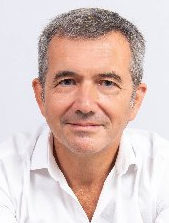How To Build A Genomic Medicine Biotech

By Matthew Pillar, Editor, Bioprocess Online

When Stephane Boissel signed on as Chairman and, eventually, CEO with then-four-year-old genomic medicines startup SparingVision in 2020, he walked into a company that was very much in the early stages of defining itself. Sprung out of the Paris Vision Institute in 2016, the company had 6 employees and a single academic research-based asset. Boissel’s hiring was a strategic attempt to nourish a deeper talent base and, in turn, a deeper pipeline. A finance guy by training, Boissel was the right man for the job. His arrival paralleled a $47 million finance round aimed at achieving an aggressive to-do list: advancing the development of SparingVision’s SPVN06 treatment for mutation-agnostic retinitis pigmentosa, ramping up GMP activity to support production of its first batch of clinical supply, bolting down IND and regulatory matters for first-in-human studies, expanding its management team, and engaging in U.S. operations.

On a recent episode of the Business of Biotech podcast, Boissel shared insight into how, in just a couple of years, he’s transformed SparingVision into a 6-candidate company with more than 30 associates filling key roles to guide it into the clinic.
The Maturation Of A Gene Therapy Development Program
“SparingVision was a single-asset company, managed at the time like an extension of the academic lab. It had very little infrastructure and very little process expertise,” recalls Boissel. The company’s board members and investors tasked him with quickly building a more “professional” approach to that asset’s development, and to add new assets to the pipeline. That sat well with Boissel, who says he’d seen the binary play before. “Those companies fail with their leader. I definitely wanted to broaden the portfolio, and had strong support from the board to do so.” Still, building new therapeutic assets from scratch was a new endeavor. He had restructured and improved pipelines during his tenures at previous biotechs, but he hadn’t led the creation of a portfolio where none had previously existed. The opportunity excited him, and he found confidence in the science. SparingVision’s scientific founders, Prof. José Alain Sahel and Thierry Léveillard, M.D., are well-decorated researchers in the ophthalmology space. Of course, he found confidence in the company’s well-timed cash infusion as well. That, he says, is illustrative of a changing tide in UK biopharma investment and behavior. “Until recently, it’s been very difficult to attract money and talent to new European biotech ventures. But that mentality is changing. Leadership teams, board members, and investors are becoming much more aggressive and ambitious. That was one of the reasons I moved back to Europe, because I saw that landscape changing.”
About a year into Boissel’s tenure as CEO, SparingVision struck a partnership deal with Intellia, which was a key strategic move in the context of his mission to expand the company’s portfolio. SparingVision’s approach to mutation-agnostic genome editing is unique. “Unlike our peers, which are targeting a specific mutation, we are developing a gene therapy product that will work independently of the mutation of the disease.” He says that creates several advantages. Theoretically, SparingVision won’t need to know the genetic background of the patient to treat them. From a single development effort, it hopes to gain access to a huge patient population and commercial potential, thus optimizing the speed and ROI on the development effort.
There was just one problem. The young company didn’t have the technology infrastructure required to develop novel genomic medicines utilizing CRISPR/Cas9 technology. Boissel devised a plan to develop a strategic alliance among players in the genome editing space to fill that gap. Much to his surprise, Intellia was eager to engage. “We are a tiny company out of France going after the technology of a giant, and their level of interest was unexpected,” he says, “but we knew they were the best possible partner for us, so we signed an exclusive term sheet with them in the fall of 2021.”
The deal gave SparingVision exclusive rights to Intellia’s proprietary in vivo CRISPR/Cas9-based genome editing technology for up to three ocular targets addressing diseases with significant unmet medical need. SparingVision also gained a strong partner in its research and development of novel self-inactivating AAV vectors and LNP-based approaches to address delivery of CRISPR/Cas9 genome editing reagents to the retina.
Putting Jockeys On The Horses
Boissel acknowledges that it comes off as cliché before turning to the development of the SparingVision executive team with the statement, “what we’re doing with the team we’re building is everything. The foundation of our founders and their great science, a good IP portfolio, a nice factory, and a beautiful lab are terrific, but not if you don’t have good people managing them.” Asked how he went about building an executive team that includes the recent additions of Dr. Daniel Chung (CMO), Dr. Mehdi Gasmi (COO), Dr. Florence Lorget (CDSO), Dr. Rajiv Gangurde (CTO), and Stanislas Piot (CFO), he says plainly, “I went out and looked for the best possible people in my field.”
I pressed Boissel on that point. Of course you want the best people possible on your team, but there’s only one Tom Brady. There’s only one T.J. Watt. That’s when Boissel admitted that it took 12 months of discussions and negotiating to land Dr. Chung, as one example. And he was quick to add that it’s not just about the paycheck, but about the product and its promise. “Dr. Chung knew the biology we were working on. I spent a lot of time laying out the company’s vision and where we were going,” says Boissel. A bit of serendipity also helps. When Boissel began courting him, Dr. Chung was nearing the end of an intensive project in his previous role at Spark Therapeutics. He was open to considering something new, once he reached the milestone he’d been working on there. “I had to be patient, but I knew he was going to be the one,” says Boissel.
In several previous conversations with biopharma CEOs, I’d picked up on the strategic timing of filling certain roles based on clinical progress. You don’t necessarily need a CRO if you’re not ready to file an IND. You don’t need a seasoned veteran of clinical trials management if you’re years out from entering the clinic. Boissel begs to differ. “When I started searching for a CMO, SparingVision didn’t necessarily need a CMO, certainly not one of Dr. Chung’s pedigree,” he says. "But I knew the time would come. We don’t recruit when we need the role. We recruit ahead of that time, knowing it will take time to get the person we want to work with.” In recruiting as in fundraising, the best time to pursue what you’ll need isn’t necessarily when you need it. It’s now, and always.
The executive team at SparingVision is also geographically distributed, another conscious decision on Boissel’s part. “I decided to go out and find the talents where they lived, free from pressure to relocate to France. Proximity wasn’t the most important factor for me. The most important question was, are they the best at what they do? And that’s what guided those decisions.”
There’s much, much more to the conversation with Stephane Boissel—including a walk through his pipeline and the three strategic pillars of SparingVision’s development effort—on episode 90 of the Business of Biotech podcast.
